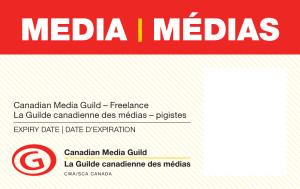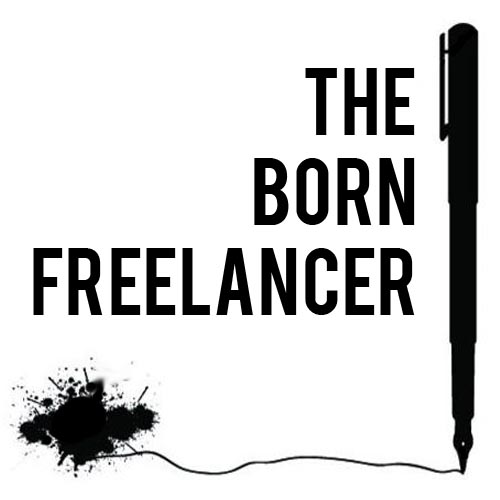The 5-Minute Freelancer Q&A #26 — Arno Kopecky
In this regular feature, Story Board asks Canadian writers to share a few details about their work habits and their strategies for navigating the ups and downs of freelance life.
Arno Kopecky won the 2015 Dave Greber Freelance Writers Award for his article Title Fight, which ran in the Walrus last summer.
The Vancouver-based writer has had his work published in Maclean’s, the Globe and Mail and Reader’s Digest. He has also written two books: The Devil’s Curve and The Oil Man and the Sea, both of which explore environmental and Indigenous issues.
He took some time to speak with Story Board recently about longform journalism, building confidence, and surviving the hungry early years of a writing career.
How do you tend to approach a subject that you want to write about?
Usually I go to a place and live in it as best I can. I should preface this by saying I got a grant from Canada Council for the Arts to write a novel a few months ago, so that is now my life. Which has allowed me to sort of step away from journalism altogether. But I got into freelancing about 12 years ago and it was sort of a way to combine my love of travel and my interest in current affairs and global affairs.
Read the rest of this post »
CMG Freelance Launches Media Card Program
 The Freelance Branch of the Canadian Media Guild will now offer a media card, available to its journalist members.
The Freelance Branch of the Canadian Media Guild will now offer a media card, available to its journalist members.
“We’ve heard from our members that having a media card may make it easier for them to gain access to events or interviews, and provide a ‘calling card’ that asserts they are qualified freelance journalists,” says Don Genova, CMG Freelance President.
The front of the wallet-sized card will feature the member’s name and photo, while the back of the card will contain a QR code that will link to the member’s profile on the CMG Freelance website.
Genova says, “The QR code is a quick way for the cardholder to showcase their credentials, as their profiles can contain samples of their work; it also gives any authority scanning the card an instant way to verify the identity and experience of the cardholder.”
Media cards will not cost extra for members. They do have to hold a valid membership, which is $150/yr for independent freelancers. Regular freelancers at the CBC are also eligible to apply, as are people who freelance to other employers with CMG-based collective agreements. They must hold a current CMG membership number.
The applications will be reviewed by Genova along with Scott Edmonds, a retired Canadian Press reporter/editor who is also a member of the Freelance Branch.
“We are asking people to do a little bit of work to get the card,” notes Genova. “They need to have their online profile with us updated and demonstrate, with references, that they are indeed making at least part of their living from freelance media work. And the updated profiles will make it easier for us to refer potential employers to one or more of our members.”
To purchase a membership, visit cmgfreelance.ca. If you’re already a member, you can apply for your media card right here. Any questions can be directed to Don Genova at freelance@cmg.ca.
Off The Wire: News for the Canadian media freelancer Jan 19-25
Once a week, we gather stories about the media business, journalism, writing, publishing, and freelancing—with a Canadian focus—and share them in Off the Wire. Who needs a water cooler?

From Canada:
- Chronicle Herald suspends layoff notices, says union [Toronto Star]
- Canada’s national fabric is paying price for depletion of journalistic resources: Hébert [Toronto Star]
- Op-ed: Dear Canadian journalists, It’s time to take action [Ryerson Review]
- Why the Chronicle Herald is locked in a labour dispute [J-Source]
- The true meaning of Postmedia’s job cuts can’t be captured in numbers [Globe and Mail]
- Nobody likes a scab: Journalists must oppose Chronicle Herald lockout [Rabble]
- Postmedia’s betrayal of trust [Unifor]
- Postmedia merges newsrooms, cuts 90 jobs in response to financial woes [Globe and Mail]
- State of the Unions [Canadaland]
From The U.S. and beyond:
- Why You Should Be Pursuing Anchor Clients and How to Do It [The Freelancer]
- How to “winterize” your freelance business [Freelancers Union]
- 8 Blogs Every Media Professional Should Follow [Mediabistro]
- Choose a main character and 9 other ideas for starting a story [Poynter
- Does Your Personality Fit The Gig Economy? [Forbes]
- As Jason Rezaian goes free, press freedom worldwide remains imperiled [Poynter]
- Why English writers accept being treated like dirt [The Spectator]
- So You Want to be a Freelance Writer [Spirit Style Scribe]
Last week on Story Board:
- CWA Canada Associate Members call for solidarity with Halifax journalists: CWA Canada Associate Members are joining the Halifax Typographical Union (CWA Canada Local 30130) in calling on freelancers and student journalists to stand in solidarity with newsroom staff at The Chronicle Herald who could be on picket lines Saturday morning…
- Links between freelancing and gender inequality highlighted by Chronicle Herald labour dispute: The Halifax Chronicle Herald made headlines last week for contacting freelance journalists to replace the newspaper’s employees during a possible lockout or strike, which could start as early as January 23…
- Freelancers, union leaders urge support for Chronicle Herald staff during labour dispute: Sandra Phinney knows exactly how difficult it is to negotiate with the owners of the Halifax Chronicle Herald. The Yarmouth-based freelance writer was offered a harsh contract by the company several years ago…
Spot a story you think we should include in next week’s Off the Wire? Email the link to editor@thestoryboard.ca or tweet us at @storyboard_ca.
CWA Canada Associate Members call for solidarity with Halifax journalists
by the CWA Canada Associate Member steering committee
CWA Canada Associate Members are joining the Halifax Typographical Union (CWA Canada Local 30130) in calling on freelancers and student journalists to stand in solidarity with newsroom staff at The Chronicle Herald who could be on picket lines Saturday morning.
Management at the daily newspaper, which gave notice of a lockout last week, has for several months been attempting to recruit recent journalism school graduates and freelancers to produce news coverage in the event of a work stoppage.
Negotiations between the company and the Halifax Typographical Union (HTU), which represents 61 editorial workers, came to a standstill after only two days. The Herald refused to budge on its proposals, which include wage cuts, an increase in working hours, a removal of a gender parity clause in the contract and a layoff of a third of the staff.
CWA Canada Associate Members, who include 600 students, precarious and emerging media workers across the country, support the union in fighting against these detrimental changes in the newsroom. Not only would these proposals negatively impact the current workers, they would eliminate good jobs at The Chronicle Herald for the next generation. Management’s proposals would lower wages and working standards across the media industry, also making it more difficult for freelancers and entry-level workers to earn a fair pay.
In preparation for the work stoppage, the Herald has also “indefinitely” removed the bylines and credits of its journalists and photographers, which will help management hide the identities of journalists who scab during a work stoppage.
As a result of management’s heavy-handed tactics and recent outreach to journalism school grads and freelancers to work as scabs, the HTU has asked that anyone contacted by the paper refuse assignments.
Read the rest of this post »
Links between freelancing and gender inequality highlighted by Chronicle Herald labour dispute
By Errol Salamon
This post is the first in a series called “E-Lancer Writes.” The series will explore the working conditions, rights, and collective organizing strategies of freelance journalists, interns, and other low-wage and temporary digital media workers.
The Halifax Chronicle Herald made headlines last week for contacting freelance journalists to replace the newspaper’s employees during a possible lockout or strike, which could start as early as January 23.
According to a November 2015 email from Herald management shared with CBC News by one of the freelancers, the paper is offering freelancers “full-time contracts of up to four months” in the event of a work stoppage. These scab freelancers would typically work from home, and the paper would publish their work without bylines to protect their anonymity.
These offers were made right before the company walked away from the conciliation process in late December. In addition to monetary issues such as massive cuts to wages and pensions and plans to slash 30 percent of the paper’s 61 newsroom positions, the Herald wants to remove the gender parity clause in its collective agreement. This clause recognizes “equal pay for equal work for male and female employees,” says the Halifax Typographical Union, the CWA Canada local that represents the paper’s employees.
There’s a link between the Herald’s desire to remove gender parity and their plan to temporarily hire freelancers to reduce organizational spending. Freelance writing, after all, has overwhelmingly been underpaid women’s work.
Read the rest of this post »
Freelancers, union leaders urge support for Chronicle Herald staff during labour dispute
by Rachel Sanders
Sandra Phinney knows exactly how difficult it is to negotiate with the owners of the Halifax Chronicle Herald. The Yarmouth-based freelance writer was offered a harsh contract by the company several years ago.
“It was all-rights-grabbing. Including moral rights. And we would be liable if a reader had sued the paper. The onus was entirely on the freelancers. It was just one of those worst-case scenarios in terms of contracts,” Phinney told Story Board during a phone interview this week.
She and a group of other freelancers, including columnists such as Ralph Surette, Silver Donald Cameron and Harry Bruce, tried to schedule a meeting with the company to discuss the contract.
“We thought that we would be able to just talk with the owners. But that wasn’t possible because they simply refused to meet with us,” she says.
Phinney sees striking similarities between that experience and the current labour dispute between the paper’s newsroom staff and its owners.
“We were a smaller group and we were freelancers, but I sense that the same thing has happened with staff. That there’s no desire to have a conversation. And if you can’t communicate with your employer, nothing happens. You can’t create understanding, you just can’t get anywhere,” she says.
Phinney says that she, like many freelancers, stopped writing for the paper over that contract. But about six months ago, Phinney caught wind of a new freelance contract at the Chronicle Herald.
Read the rest of this post »
Off The Wire: News for the Canadian media freelancer Jan 12-18
Once a week, we gather stories about the media business, journalism, writing, publishing, and freelancing—with a Canadian focus—and share them in Off the Wire. Who needs a water cooler?

From Canada:
- Chronicle Herald’s newsroom union votes to strike [CBC]
- Toronto Star closes Vaughan printing plant, cuts newsroom jobs [Globe and Mail]
- Chronicle Herald staff take labour dispute to Twitter [J-Source]
- Winners of the annual JHM awards announced [J-Source]
- Journalism head cautions recent grads about ‘scab’ work at Halifax paper [As It Happens]
- CMG concerned about increased media concentration in Canada as Corus buys Shaw Media [CMG]
- Postmedia to accelerate and hike cost cuts [J-Source]
- The Chronicle Herald contacts freelancers ahead of possible work stoppage [CBC]
- King’s Student Union, journalism school director, against scab labour at the Herald [Halifax Media Co-op]
From The U.S. and beyond:
- How Investigative Journalists Can Protect Themselves [The Freelancer]
- 10 More Mistakes That (Might) Ruin Your Freelancing Career [The Freelancer]
- Huffington Post Management Voluntarily Recognizes Employee Union [Huffington Post]
- How to preserve your work before the Internet eats it [Poynter]
- Calling all freelancers: 4 expert ways to manage your business this year [Mashable]
- How to prioritize learning in 2016 [Freelancers Union]
- 4 Reasons Your Low Freelance Writing Rates Are a Terrible Idea [The Write Life]
- Al Jazeera America to Shut Down by April [New York Times]
- Choose a main character and 9 other ideas for starting a story [Poynter]
Last week on Story Board:
- The Born Freelancer on Having a Business Mailing Address: It was late one night when a loud hammering on my front door interrupted an enjoyably quiet summer evening…
- Tricks of the Trade: Clever tips for finding stories at conferences: How do you nab great stories at conferences? That’s a question I’ve been toying with a lot lately, because in late December 2015, I had the opportunity to attend The Society For Marine Mammalogy Conference in San Francisco…
Spot a story you think we should include in next week’s Off the Wire? Email the link to editor@thestoryboard.ca or tweet us at @storyboard_ca.
The Born Freelancer on Having a Business Mailing Address
This series of posts by the Born Freelancer shares personal experiences and thoughts on issues relevant to freelancers. Have something to add to the conversation? Your input is welcome in the comments.
It was late one night when a loud hammering on my front door interrupted an enjoyably quiet summer evening. Upon opening my door I was surprised and somewhat annoyed to discover a semi-inebriated former employer in need of a shoulder to cry upon about his unhappy domestic situation.
Why me?
He’d remembered “how well” we’d got along. This despite terminating my freelancing services. However, he had kept my business card. It had my home (office) address on it – and, lucky me, he’d been in the neighborhood.
Ah, the joys of being a freelancer. It can be hard to close the door (figuratively or literally) on a possible employer – even an ex-employer – and didn’t this one know it.
Now this scenario did not involve any danger to me nor serious consequences but it might have. What if it had been a former employer with a vindictive agenda? Or an unhappy story subject with an imagined grudge?
Working from my home office it had never occurred to me not to put it on my letterhead, business cards and promotional material. Now for the first time I felt vulnerable. I resolved in future to make my physical location less readily available.
Tricks of the trade: clever tips for finding stories at conferences
by Lesley Evans Ogden
How do you nab great stories at conferences? That’s a question I’ve been toying with a lot lately, because in late December 2015, I had the opportunity to attend The Society For Marine Mammalogy Conference in San Francisco. There, I was one of 14 COMPASS Journalist Fellows scouring the scene for stories.
This was a large conference, with over 2200 scientist attendees. Yet just down the road was the American Geophysical Union, a meeting almost ten times the size. The sheer numbers of experts, all with potential stories to tell, got me thinking about how to “do” conferences without suffering from information overload and a constant case of FOMO (fear of missing out).
Whether the conferences you attend are about science, food, travel, culture, or anything else, where, exactly, do good story opportunities come from?
To answer that question, I asked fellow journalists to tell me what they do before, during, and after a conference. Below is a non-random sample of their wisdom.
Some are short tips. Others are detailed explanations. I’ve organized them from shortest to longest.
~~
Read the rest of this post »
Off The Wire: News for the Canadian media freelancer Jan 7-11
Once a week, we gather stories about the media business, journalism, writing, publishing, and freelancing—with a Canadian focus—and share them in Off the Wire. Who needs a water cooler?

From Canada:
- Stop writing for the Halifax Herald [Halifax Media Co-op]
- To my former bosses at the Chronicle Herald [The Coast]
- The 2016 Digital Publishing Awards are now open for submissions [Digital Publishing Awards]
- J-Source seeks its next editor-in-chief [J-Source]
- Atlantic Journalism Awards entry deadline looms [Canadian Magazines]
- The epic guide to changing everything in 2016: 6 ways to actually follow through on your resolutions [Rags to Reasonable]
From The U.S. and beyond:
- How Much of Your Personality Should You Reveal to Your Editor? [The Freelancer]
- 3 tips to cleaning up a freelance mess [Freelancers Union]
- Pulitzer Prizes turn 100 this year, will celebrate with 4 big events [Poynter]
- Nine essential tips for the (successfully) self-employed [The Guardian]
- 5 Writing Challenges That Will Help You Dominate 2016 [The Freelancer]
- How to prioritize learning in 2016 [Freelancers Union]
Last week on Story Board:
- A message to freelancers from the Halifax Typographical Union: CMG Freelance received the following letter from the Halifax Typographical Union this week…
- Entries open for the 2nd annual SABEW Canada Best in Business Awards: Freelance business writers, entries are now open for SABEW Canada’s 2nd annual Best in Business awards competition…
Spot a story you think we should include in next week’s Off the Wire? Email the link to editor@thestoryboard.ca or tweet us at @storyboard_ca.





